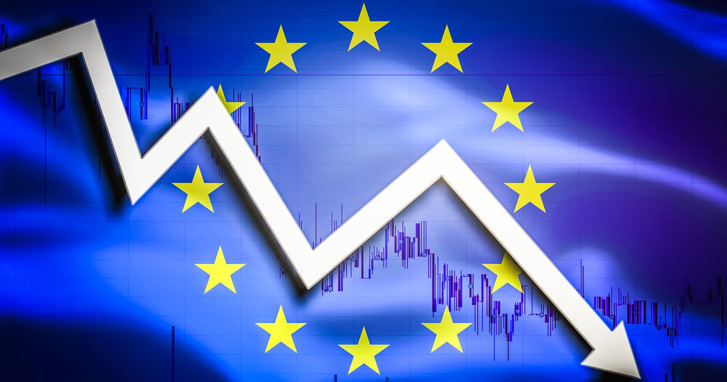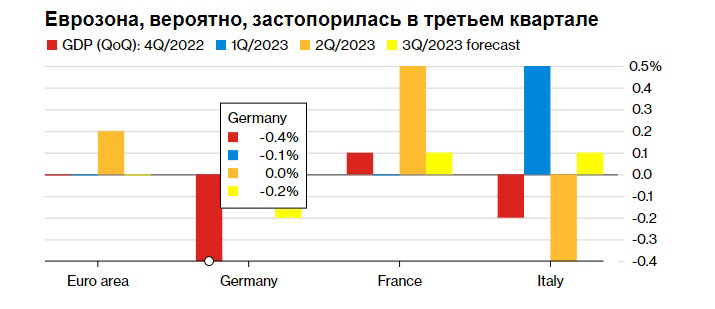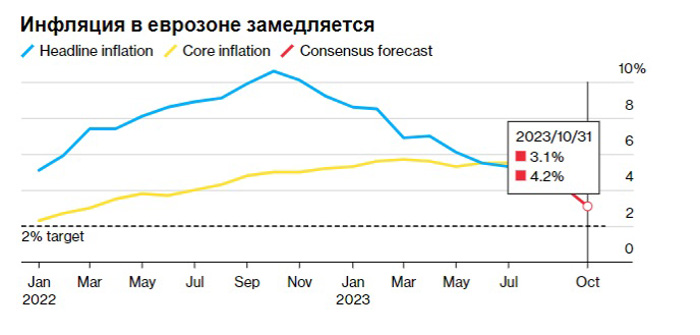The situation in the European economy today
Understanding the current state of the EU economy helps in making important decisions, such as investing in shares of European companies or buying euros.

Recently, the European Union, like most other world countries, has been going through far from the best times. The main reasons for the current economic situation were the pandemic and rising energy prices.
Record inflation led to an increase in interest rates , as a result of which the rate of the European Central Bank reached 4.5%, which is a historical maximum for the entire existence of the euro.
The eurozone economy stalled or even contracted in the third quarter of 2023 under the cumulative burden of interest rate hikes.

European Central Bank President Christine Lagarde warned that after ten rate hikes, an unprecedented tightening of financial conditions is taking place. She previously told European Union leaders that the economy was likely to stagnate in the coming quarters.
The Germans and Austrians ruined the picture
Lagarde's statement is upbeat compared to forecasts by Barclays economists, who believe the euro zone could fall into recession much sooner.
“Monetary tightening is generating quite a lot of pressure and we haven't seen the full impact of that yet,” Silvia Ardaña, head of European economic research at the British bank, told Bloomberg Television. "We think core inflation and headline inflation will return to 2% sooner than the ECB forecast, and that's because we have a much weaker outlook for economic activity."

It was Germany, whose GDP data will be published on Monday, along with Austria and Belgium, that put the most pressure on the eurozone in the third quarter. At the same time, data from France and Italy are likely to be more positive.
Preliminary reports from other countries in the region released on Friday 27 October were mixed, with Spain posting strong growth during the quarter and Ireland's economy contracting notably.
Inflation is slowing down
The ECB management is optimistic and hopes for an improvement in inflation indicators. The overall figure is expected to be 3.1%, already close to the target of 2%.

Record interest rates have helped stem inflation, but at the same time, keeping rates high is taking a toll on the economy. Therefore, as soon as the 2% target is reached, a decision will be made to reduce the ECB interest rate.
